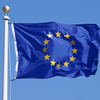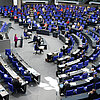Group of Twenty
The Group of 20 (G20) is comprised of the 19 leading industrialised and emerging countries plus the European Union and the African U nion. The G20 countries are home to almost two thirds of the world’s population, account for more than three quarters of global trade and more than four fifths of global GDP. Its members are: Argentina, Australia, Brazil, Canada, China, France, Germany, India, Indonesia, Italy, Japan, Mexico, Russia, Saudi Arabia, South Africa, South Korea, Turkey, the United Kingdom, the USA, the EU and the AU.
Like the Group of Seven (G7), the G20 is an informal forum since it has no administrative apparatus of its own nor a permanent representation of its members. That is why the presidency, which rotates annually between members, plays such an important role. The presidency sets the thematic priorities and organises the annual summits and specialised ministers’ meetings. Each presidency can also invite other countries, regional organisations and international organisations to join the member countries when they meet.
Although decisions adopted by the G20 are not legally binding, they nevertheless have considerable political impact on account of the combined political and economic clout of the G20 members, so that many other countries as well as international organisations look to its decisions.
Initially, only the G20 finance ministers and central bank governors met regularly to discuss key issues of international economic and monetary policy. Since the 2008 financial crisis, the G20 has also been meeting at Heads of State and Government level. Since global challenges have multiplied in recent years, the agenda has also expanded and now includes trade, health, climate change, development policy, digital transformation as well as labour market and employment policy.
2017 saw the first ever Health Ministers’ Meeting at the invitation of Germany. The two-day meeting on 19 and 20 May 2017 in Berlin centred on addressing global health threats. The G20 Health Ministers agreed to improve health crisis management, strengthen health care systems and address antimicrobial resistance. On 1 December 2024, South Africa assumed the G20 Presidency, taking over the baton from Brazil. The G20 Health Ministers' Meeting is scheduled to take place in Polokwane, South Africa, in November 2025. South Africa has identified universal health coverage (UHC), strengthening human resources for health, stemming the tide of non-communicable diseases, Pandemic Prevention Preparedness and Response (PPPR) as well as local pharmaceutical manufacturing, science and innovation for health as priorities of its G20 Presidency health track. On December 1, 2025, the USA will take over the G20 Presidency from South Africa.
Additional information
-
Overview: The German G20 Presidency 2017
On this website, the Federal Government has pooled the most important information on the latest German G20 presidency.
-
Public health at the 2017 G20 Summit
The Federal Ministry of Health has collated the outcomes of Germany’s latest G20 presidency in the health field on one thematic site.
-
Working Group of G20 Health Experts
In preparation for the G20 Health Ministers’ Meeting that was first held in 2017 in the context of Germany’s G20 presidency, a newly established Health Working Group came together in Berlin.
-
G20 Summit: Globale Antworten gefragt (in German)
Article on the agenda of the 2017 G20 Summit in Hamburg on aerzteblatt.de.
-
Overview: Global Health Policy
Global health issues call for solutions that also cross thematic borders. The Federal Ministry of Health provides a recap of the most important aspects of a modern Global Health Policy.
































